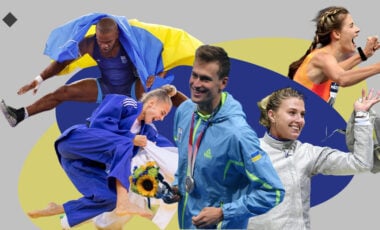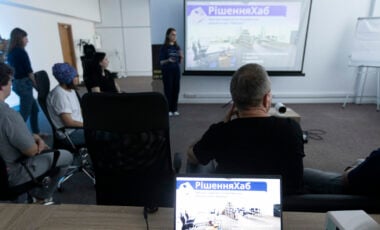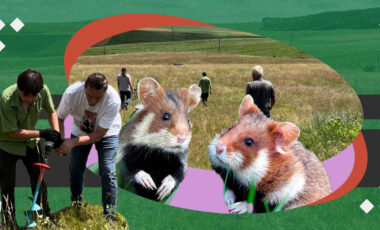"I need to be useful": How can IDPs find their business in a new place?
Sometimes just an idea or timely advice is enough. We share the story of an internally displaced person (IDP) from the Kherson region who started an original business in Lviv and the psychologist's advice for IDPs who want to find themselves anew.

What is the problem?
Work for internal migrants
Because of the war, many Ukrainians are forced to leave their homes and go to the country's safer regions. In a new place, they have to look not only for shelter but also for livelihood, work, or a new business. A study conducted on the eve of the war showed that more than half—54%—of Ukrainians had no savings. 19% had a financial cushion for one month, 15% had savings for 2–4 months, and 11% had savings for half a year or more. It is not difficult to figure that in more than 100 days of the war, the resources of most people have already been exhausted.
IDPs are supported by the state, international funds, local communities, volunteers, and ordinary strangers. Migrants are greeted hospitably, sympathized with, and try to make their lives "like at home." However, the lack of work is a significant problem for those forced to live far from home. Unemployment of migrants has a negative impact not only on the family's economy but also on people's psychological state. Lack of work increases depressed moods and feelings of insecurity and leads to broken families.
What is the solution?
Create your business
Often, IDPs try to look for work through employment centers, but it's challenging to find a job that "someone will provide" for you now. For example, in the Lviv region, as the Rating sociological group reports, only every fifth displaced person was able to find a job. Ukraine's west, which includes the Lviv region, has traditionally not broken records regarding employment opportunities, even in peacetime. Creating new jobs is a long process and depends entirely on investments, which cannot be expected to boom until the end of hostilities. Therefore, IDPs decide to look for income on their own, take courses for retraining for employment, and get a day job. But there's another solution—trying to provide yourself with work on your own. Remember all your skills and abilities and turn them into business.
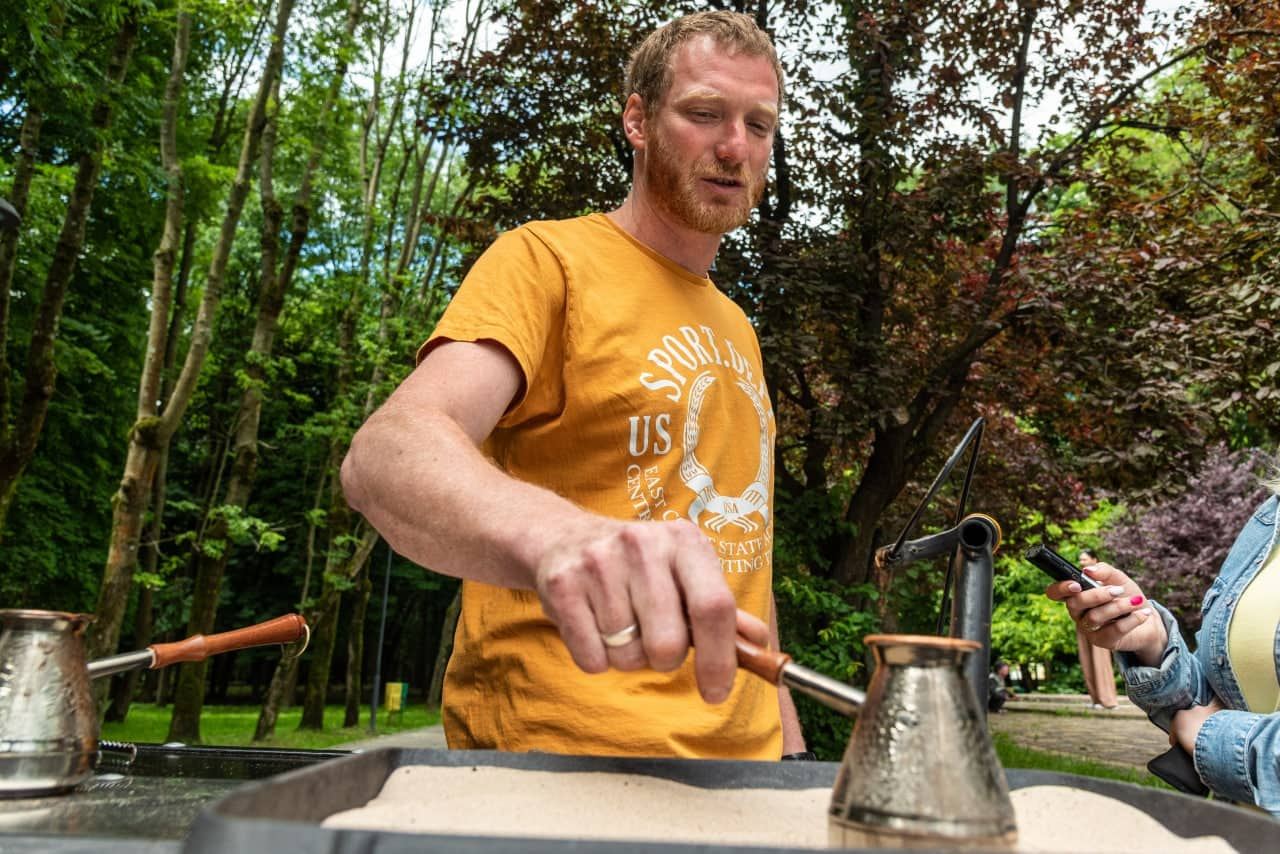
Dmytro Sivak. Photo by Ivan Stanislavskyi
Finding resources and opportunities where you "just know how to do it" is difficult, but it is possible. Dmytro Sivak, an internally displaced person from the temporarily occupied Kherson region, who was not afraid to create his mini-cafe on wheels in Lviv, Ukraine's capital of coffee, with minimal investment, proves it.
How does it work?
Coffeeshop on wheels by migrant from Kherson region
In his peaceful life, Dmytro was engaged in tourism: organizing hikes and training children. His life was rock climbing, mountaineering, rafting, speleology, children's camps, and hiking. After the russian occupation of Crimea, when the mountains there became inaccessible, Dmytro built a climbing wall in Tavria's Green Farms, a center of ecotourism in the Kherson region, and a rope park and a troll park developed nearby.
"Those were very similar times [russia's annexation of Crimea and war in Donbas in 2014]," Dmytro recalls. "Although there was not a full-scale war, as it is now, it was already the beginning. It was also difficult to make something new from scratch in the territory close to Crimea. But then I was at home. I had my friends with me, I was on my territory, and I had my instrument. I can't use the word 'mine' now that my family and I are in evacuation. That's the real difficulty."
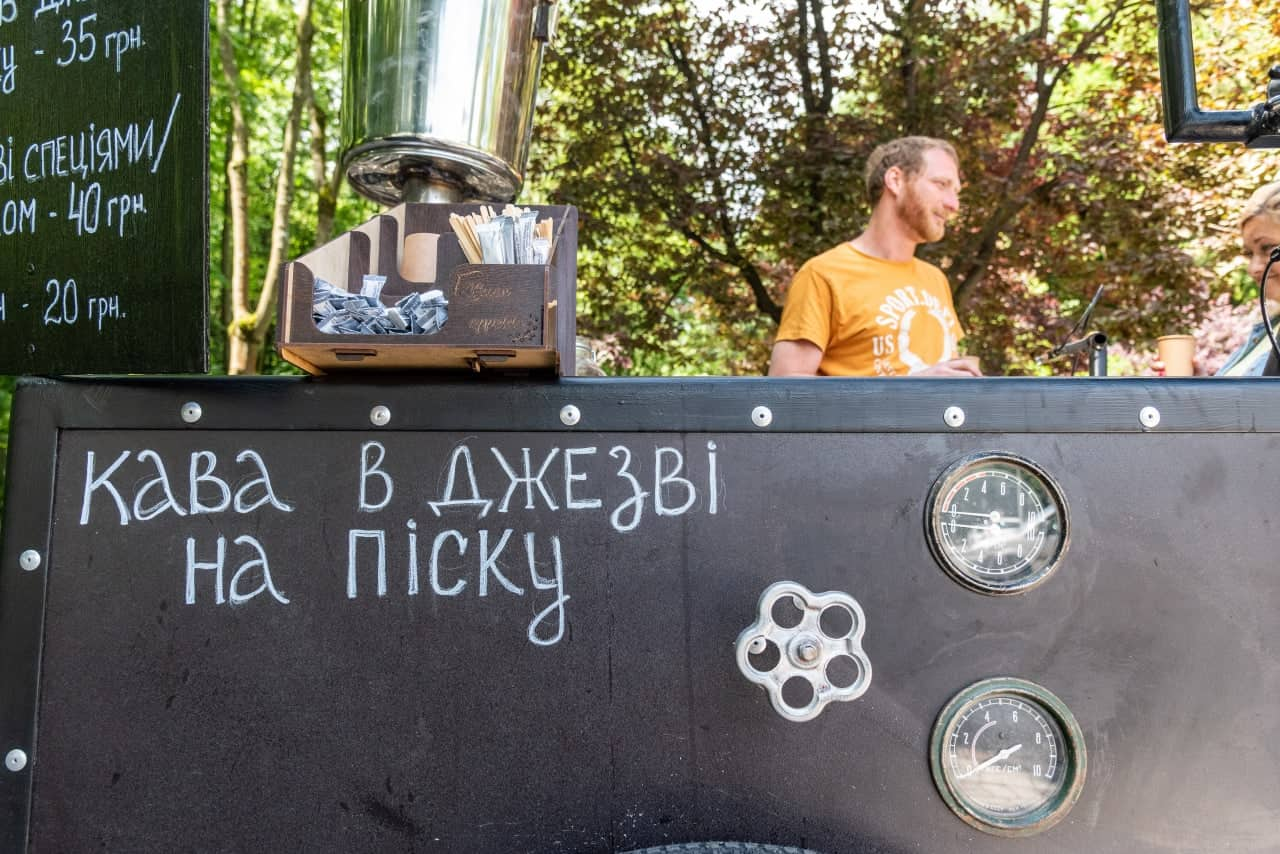
Photo by Ivan Stanislavskyi
russian troops entered the Kherson region very quickly. Dmytro and his family managed to leave for the territory controlled by Ukraine in the first days of the occupation. An hour and a half later, where their car had passed, fighting began. They were going to Lviv because Dmytro's wife was from there. There was no time to pack and no awareness of what was happening. He, his wife, two daughters, and a dog planned to leave home "for a few days" in what they were wearing. In the suitcase, they packed what happened to be at hand.
Dmytro signed up for the Territorial Defense in Lviv and had on-duty shifts at night. Then, as Dmytro says, he realized the war wouldn't last for a week, so he started looking for a job. The man grabbed at everything he knew how to do, preparing shawarma, cooking Asian ramen, melting metal at a construction site, and working as a welder and ironworker. The construction was finished, and Dmytro needed to look for something again.
"The idea of a cafe on wheels has been on my mind for a long time," Dmytro admits. "We brewed coffee on the sand in Tavria's Green Farms, but we did it in a stationary oven. At a family meeting, we decided to take a risk."
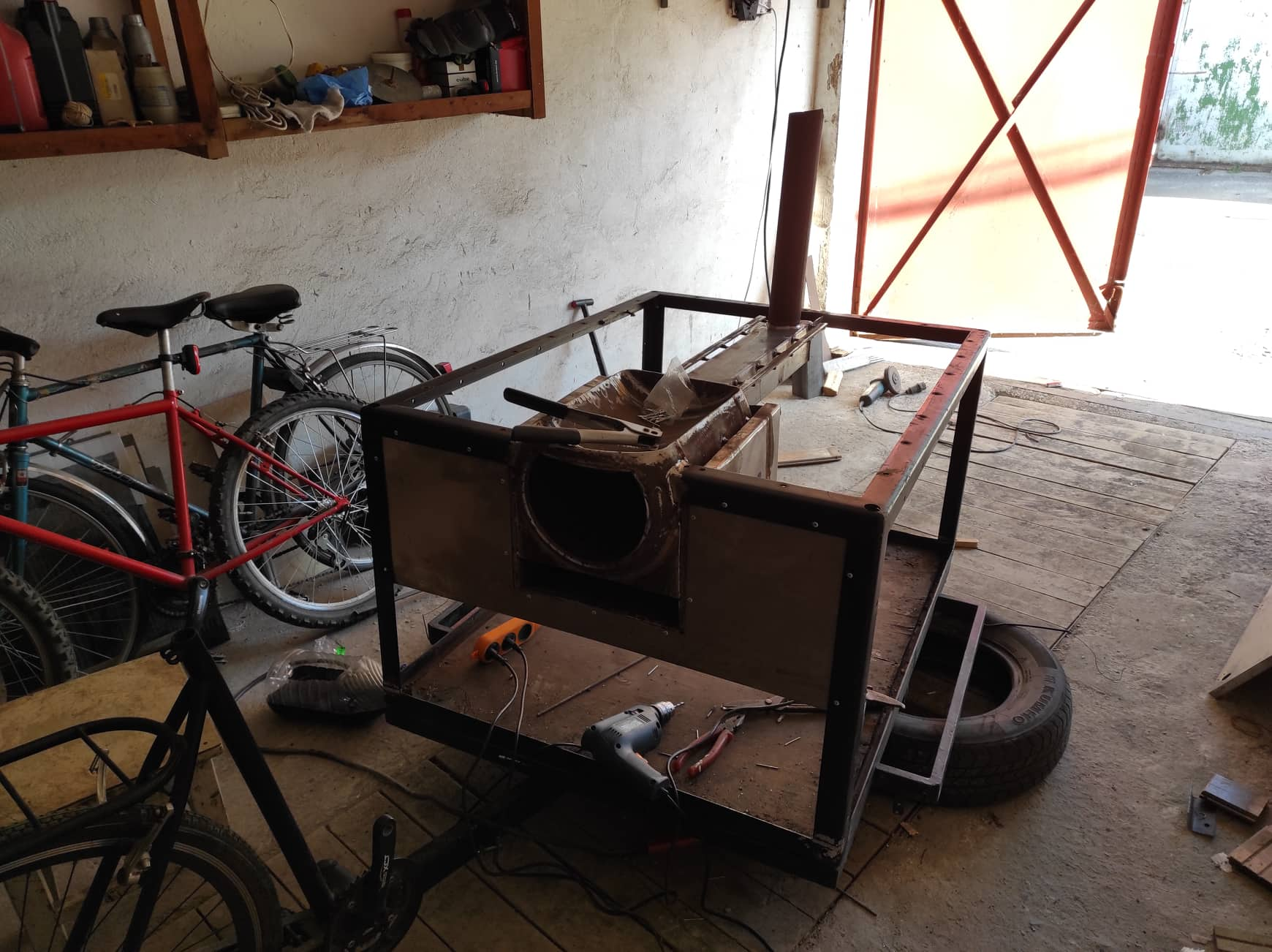
Engineering education and welder skills came in handy to implement the idea. In two weeks, in a friend's garage, Dmytro Sivak made a kind of bicycle rickshaw—a "cabinet table on wheels." He installed a furnace for heating sand and a water boiler made of a bucket on the chimney pipe. His imagination was in full swing. So, on the front part of the mobile coffee shop, painted in black and red, a "snow breaker" appeared like on old steam trains, and on the sides, the inventor installed round pressure gauges and faucets with old valves. Strangely, the structure became like a steam locomotive! The name "Kavotiah" [portmanteau of the words coffee and locomotive in Ukrainian] almost suggested itself.
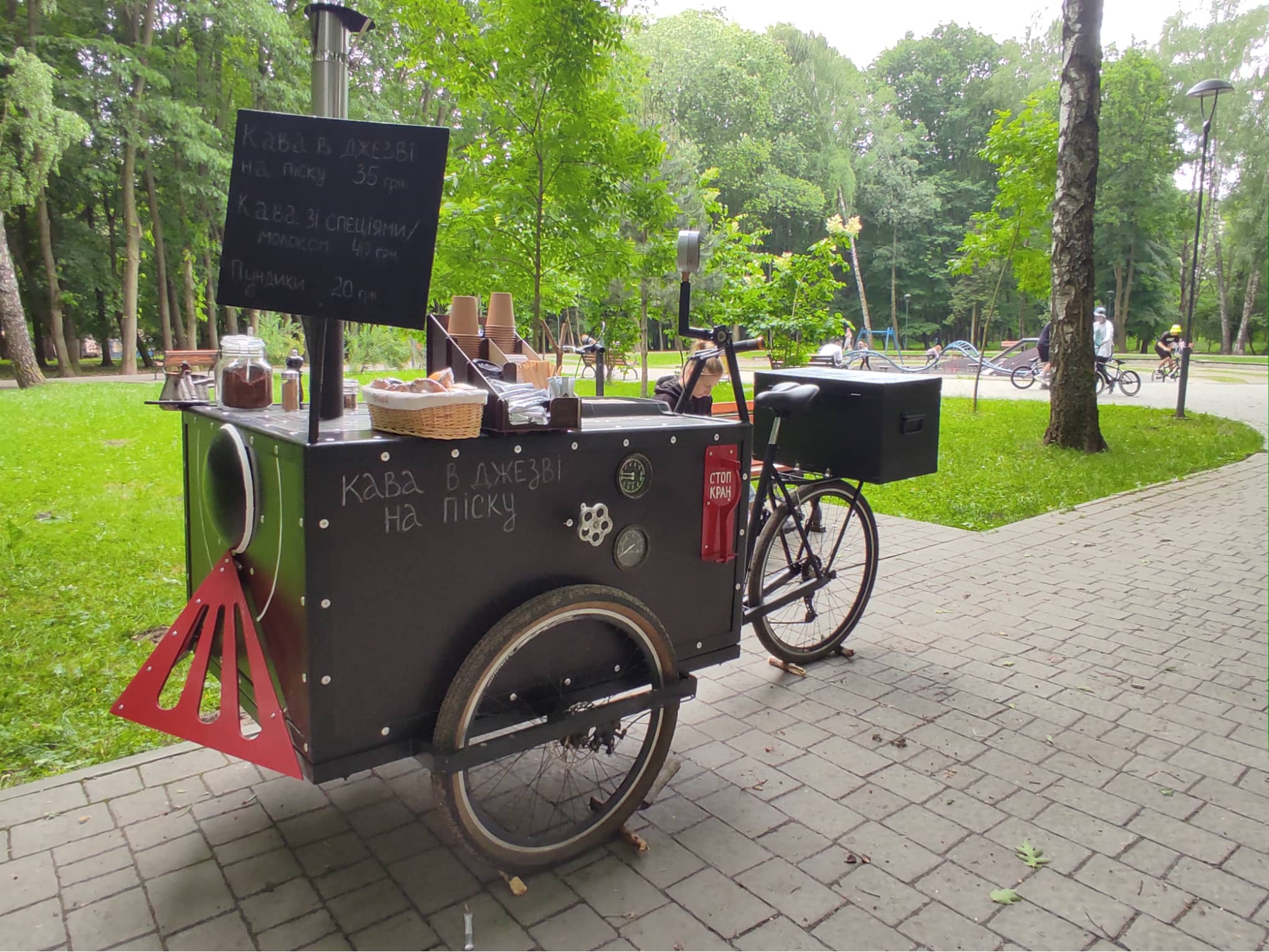
"When I first drove on this structure, passers-by looked with interest. The children pulled their parents and said: 'Mom, look at the train!' It meant that styling the coffeeshop on wheels as the steam locomotive was successful," Dmytro rejoices.
Did he succeed?
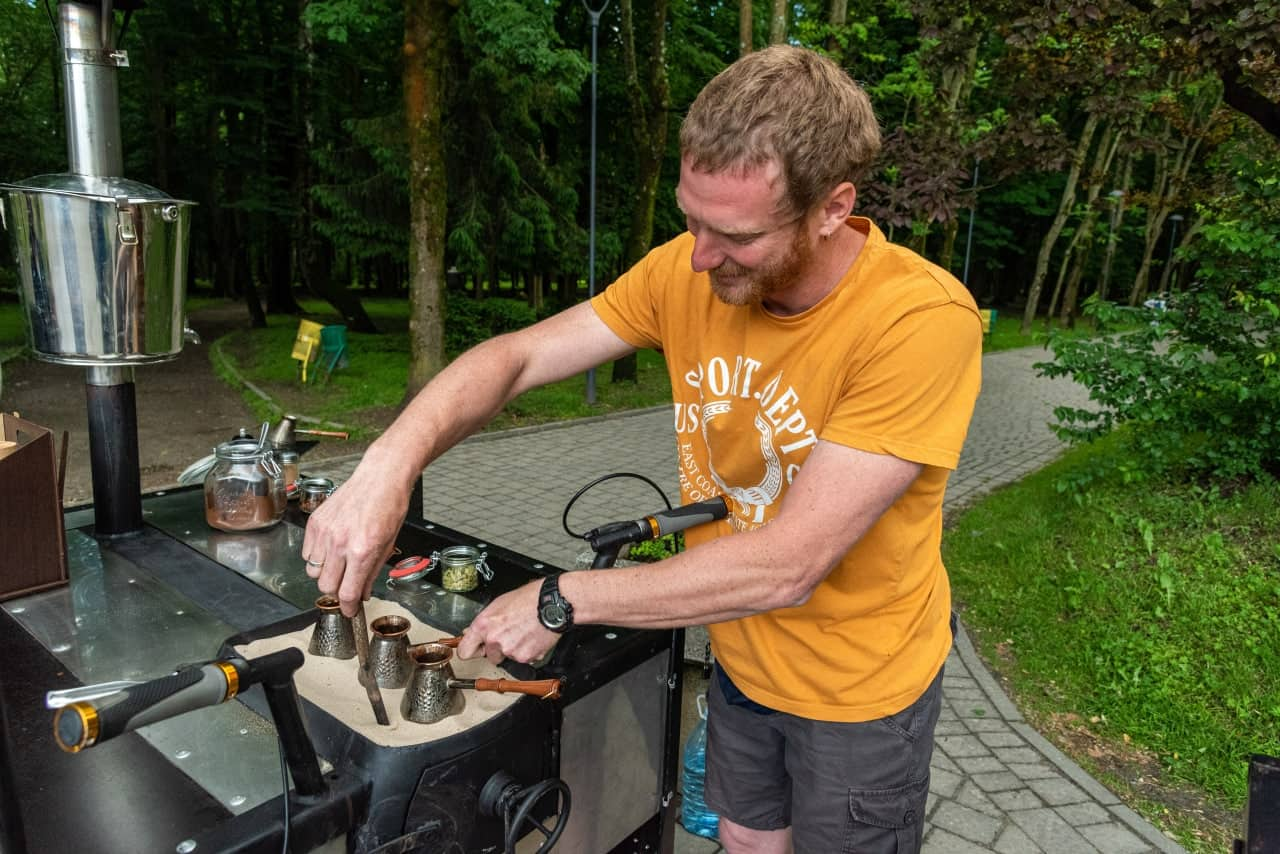
Photo by Ivan Stanislavskyi
Dmytro Sivak chose the location for the mobile coffee shop in Sknylivskyi Park. First, he lives nearby and often walks here with his children, and second, there is no cafe where you can drink good coffee. People didn't understand what it was from the first days of the Kavotiah operation. They approached, looked around, asked questions, and took pictures. In short, they didn't go for coffee, but within a few days, curiosity turned into a desire not only to take an excellent photo but also to order.
The highlight of the coffee shop on wheels wasn't only the unusual brewing method for Lviv residents but also adding various spices to the drink, the affordable price, and the barista's desire to listen and talk. Dmytro does what he likes and doesn't think he is creating competition for anyone. "My coffee is not better, but not worse either. It is different. And people always have a choice," he says.
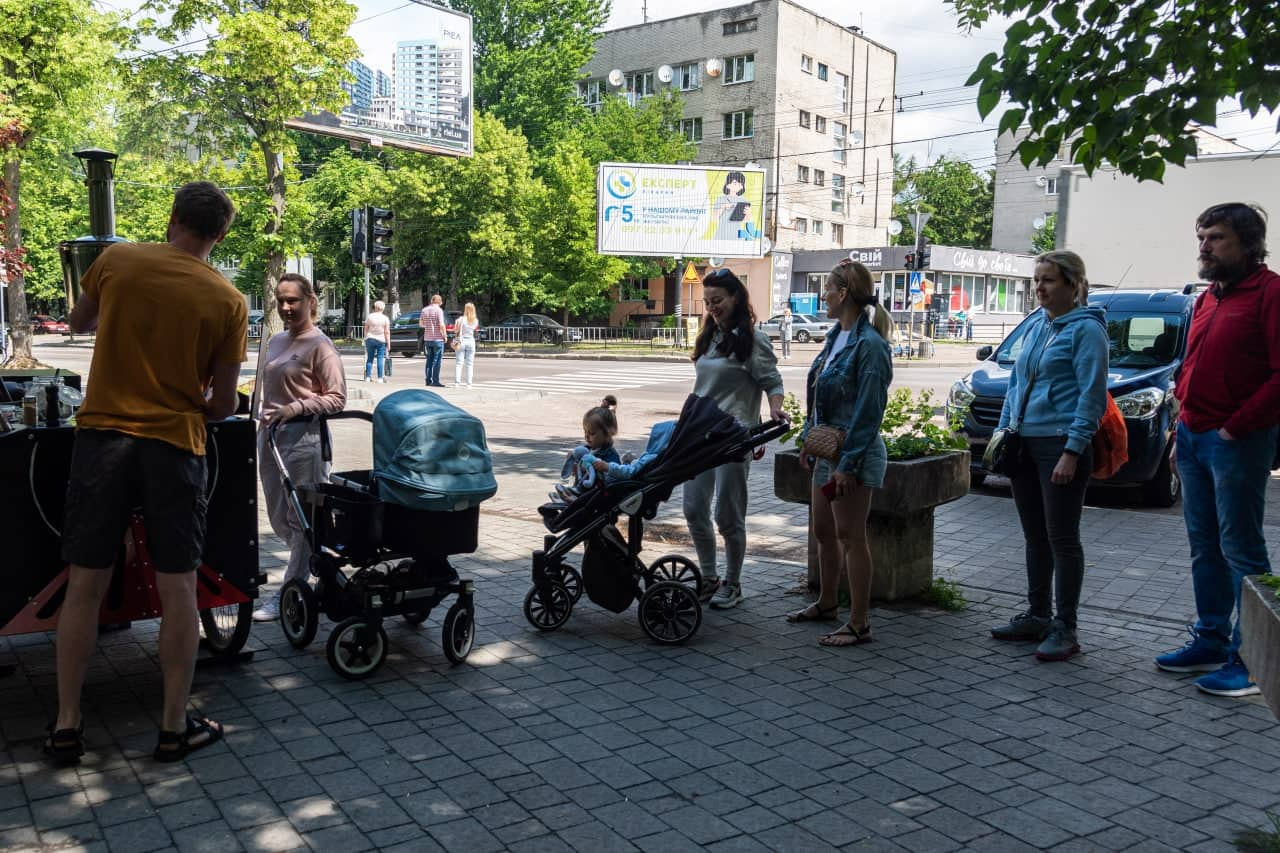
Photo by Ivan Stanislavskyi
Kind people always gather near the Kherson coffee shop on wheels. As in the Pay It Forward movie, strangers treat others to coffee. Dmytro himself treats older people to coffee, and they read him poems, tell their stories, and get to know each other. Now it's not just coffee; it's something people lack these days: positive attitude, attention, and communication.
Of course, it is also a way to feed the family, but no matter how important money is, it is still not the most important thing, as a migrant from the Kherson region points out.
"My wife knows how to bake very well," Dmytro continues. "She bakes various goodies that we sell with coffee. She must also have a job to feel fulfilled. My children are often beside me in the park and nature, and they join the work, helping us both."

Photo by Ivan Stanislavskyi
"I need to be useful, to do what is lacking here and now. It so happens that I'm not at home, but that is no reason to ask for help. I have two arms, two legs, and a head, so I can't sit around and wait for someone to take care of my family and me. I have to feed my family and help those who need it."
In addition to making coffee, Dmytro Sivak and his friends do volunteer work, collecting targeted aid for fighters at the front. Working at "Kavotiah" helps earn money for Ukrainian soldiers.
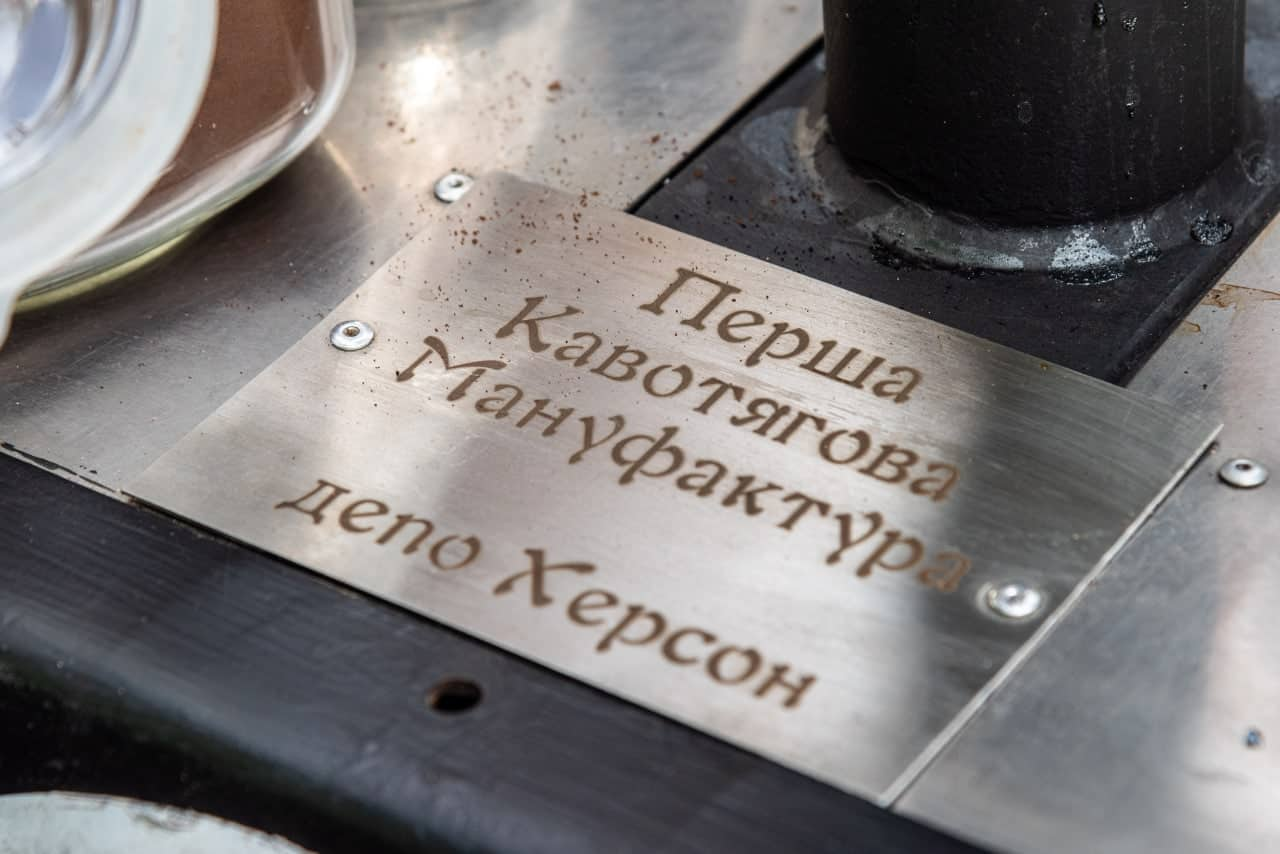
Photo by Ivan Stanislavskyi
"I don't know how to fight, but I know how to invent and create something. Someone knows how to cook borshch, and someone knows how to grow tomatoes. Our victory needs all of us," says the Kherson native. "We must be strong not to be a weight around the state's neck and to help our soldiers—no need to wait for someone to come and do something. You have to take and do it yourself where you are now! By the way, why is my coffee shop on wheels? I'm taking it to Kherson later! I'm not going to stay in Lviv. I want to go home. To my home!"
Even more helpful solutions!
Opportunities are always around us, and Lviv psychologist Natalia Ripetska is confident. First, you need to want to see them. Yes, the psychologist believes that now it can be difficult for us. We certainly have the right to live with our emotions about the losses caused by the war, but the main thing is not to fall into these depressive experiences and get back on our feet as soon as possible and raise our level of resilience. The ability to recover from life crises or upheavals requires willpower and an understanding how it works.
What to do to find yourself again?
- Natalia Ripetska says the first thing to do is to raise the level of motivation and self-belief. The positive experience of people who have been in similar life crises and managed to find a way out will help in this. Find at least five positive examples of how people created their business from scratch. Being inspired by good results and growing self-confidence will help you start your business based on the principle: "If they could do it, then I can do it too."
- The next thing we face is the fear of failure. Of course, there are no guarantees of success. The motto "I'll have a try" should help because everything we do enriches us with valuable experience. Don't be afraid of mistakes; they are necessary for our success.
- Once you've built up your faith and been inspired by positive experiences, you need a plan of where to start. Your communication skills will be required at this stage. Don't be afraid to ask and make the necessary connections for your project. Sharing the experiences of people who have positive results and are willing to share their experiences can help. Also, today there are many free platforms where you can get the necessary information. As they say, why "invent the wheel"?
- You can become friends with people who successfully engage in what interests you. Feel free to ask cheeky questions about the ins and outs of running a business, as most people are happy to help. Most likely, you will not be refused advice.
How to find hidden talents?
- Ask loved ones: what talents do they notice in you?
Since it is more visible from the outside, and we often have the habit of devaluing our skills, they say, "everyone can do this," hence, we devalue our abilities.
- What do you like to do the most?
Analyze what you like to do. When you have free time, who do you read, what content do you consume, and what are you willing to watch for hours? Natalia Ripetska says: "One of my clients discovered that 80% of what she was interested in was related to cooking, and later she opened a small business in this field. Your hobby can become a profitable business. Yes, it often happens that at first, people look for opportunities somewhere outside the boundaries of their preferences and then, with curiosity, discover that their hobby can be a life's work.
- What do you do effortlessly?
Some things come more comfortable to you than others. Did you hear something like this, "How did you do it so quickly? I would have to sit on this all day"? Draw conclusions! Maybe it is where your talent lies; not everyone can do it.
- What do you do best?
Make a detailed list of what you do best. Someone cooks delicious borshch, and someone manages to write beautiful texts or do hairstyles.
- Another worthwhile question should be answered: "What would you like to do for free, for your pleasure, if, let's imagine, you had enough money?"
The answer to this question will help reveal the deeper layers of your abilities; often, we call it a calling or a mission. "I can confirm from my example that if I didn't have to take care of my family's financial well-being, I would continue to work as a psychologist because I feel that it is my calling," says Natalia Ripetska.
- What can I do if I want to help people?
Someone feeds us deliciously, someone treats us, and someone teaches us. How would you like to be helpful to the world and people?
"I believe," the expert sums up, "that every person is talented and unique, but not everyone is aware of their talent, and it is worth making an effort to find it and make it your profession. So that you can not only earn money and be useful to people but also have fun. Therefore, your life will be fuller and happier."





























